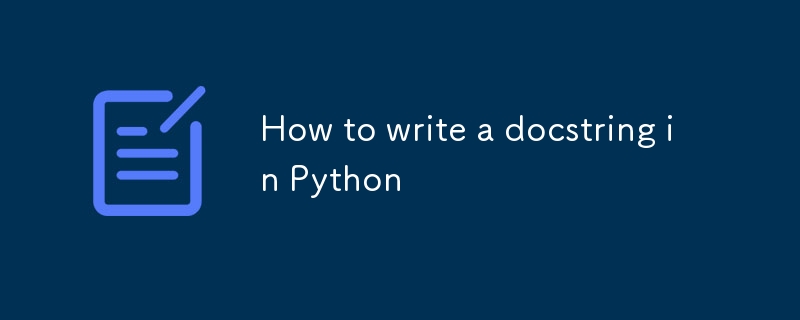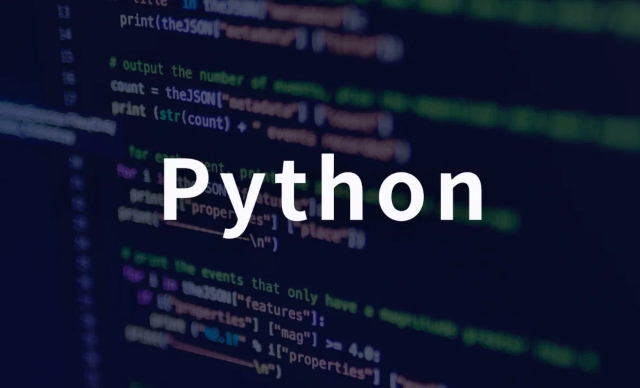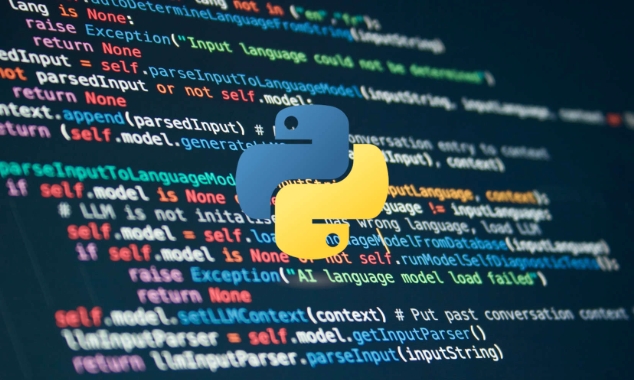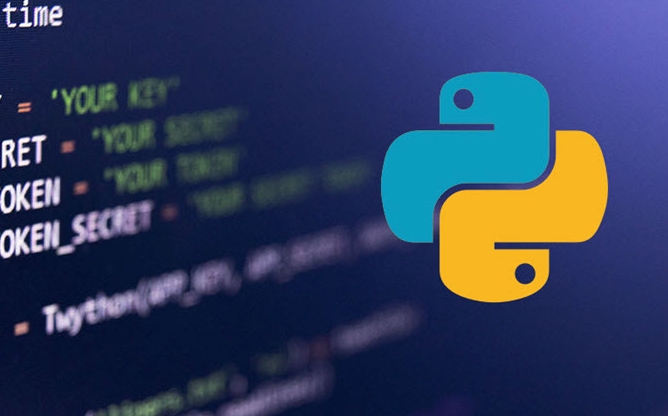The key to writing a good Python docstring is to follow norms, unify styles, include necessary information and use tools to assist. 1. Follow the basic specifications of PEP257, use three quotes to wrap the contents, briefly explain the function in the first sentence, and describe the parameters and return values in detail after emptying a line. 2. Choose a common style such as Google Style and keep it unified to improve readability and collaboration efficiency. 3. Contains key information such as function description, parameter type and meaning, return value type and meaning, and adds exception descriptions and example usage depending on the situation. 4. Use the editor plug-in to automatically generate templates and check the format through tools such as pydocstyle to ensure the correctness of the specification.

It is actually not difficult to write a good docstring of Python, but many people either ignore its importance or write it in a standardized manner. A clear, standard docstring can help you and others quickly understand the functions of functions, classes, or modules, and can also be recognized by automatic document tools such as Sphinx to generate documents.

Below are some practical suggestions to teach you how to write a useful and standardized docstring.
1. Follow the basic specifications of PEP257
Python has some basic requirements for docstring, the most basic one is:

- Use three quotes (
""") to wrap the content - The beginning sentence is concise to explain the function, and then describe it in detail after empty line
- Don't write "This is a certain function", but directly explain the purpose
for example:
def add(a, b):
"""Return the sum of a and b.
Args:
a (int): first number
b (int): second number
Returns:
int: sum of a and b
"""
return abThe first sentence is a summary, followed by an explanation of the parameters and return values. This writing is not only clear, but also facilitates tool analysis.

2. Choose a style to use it uniformly
There are three common docstring formats: PEP257 default style, reST (reStructuredText), Google Style and NumPyDoc . Among them, Google style is relatively easy to read and is suitable for beginners.
For example, Google style:
def multiply(a, b):
"""Multiply two integers and return the result.
Args:
a (int): The first number.
b (int): The second number.
Returns:
int: The product of a and b.
"""
return a * bYou can choose styles based on team specifications or project requirements, and the key is to maintain consistency.
3. Include key information, don't miss the key points
A good docstring should include the following points (not necessarily each one needs to be included, depending on the situation):
- Function description
- Parameter type and meaning
- Return value type and meaning
- Possible exception (if any)
- Example usage (optional)
Especially for parameters and return values, you must clearly write the type and function. This is especially important when collaborating with multiple people.
If you are not sure how to write it, you can refer to the standard library or popular open source projects, such as requests or pandas .
4. Use tools to check and generate docstring
Some editor plugins can help you automatically generate templates, such as:
- Python Docstring Generator for VS Code
- PyCharm comes with docstring template support
These tools can help you save time and avoid format errors. In addition, you can use pydocstyle or flake8-docstrings to check whether your docstring complies with the specification.
Basically that's it. Writing docstring does not take too much time, but the benefits are very real - it can be smoother whether you are looking back on the code yourself or others call the interface. As long as you stick to one style and write down the key information clearly, it will be great.
The above is the detailed content of How to write a docstring in Python. For more information, please follow other related articles on the PHP Chinese website!

Hot AI Tools

Undress AI Tool
Undress images for free

Undresser.AI Undress
AI-powered app for creating realistic nude photos

AI Clothes Remover
Online AI tool for removing clothes from photos.

Clothoff.io
AI clothes remover

Video Face Swap
Swap faces in any video effortlessly with our completely free AI face swap tool!

Hot Article

Hot Tools

Notepad++7.3.1
Easy-to-use and free code editor

SublimeText3 Chinese version
Chinese version, very easy to use

Zend Studio 13.0.1
Powerful PHP integrated development environment

Dreamweaver CS6
Visual web development tools

SublimeText3 Mac version
God-level code editing software (SublimeText3)
 PHP calls AI intelligent voice assistant PHP voice interaction system construction
Jul 25, 2025 pm 08:45 PM
PHP calls AI intelligent voice assistant PHP voice interaction system construction
Jul 25, 2025 pm 08:45 PM
User voice input is captured and sent to the PHP backend through the MediaRecorder API of the front-end JavaScript; 2. PHP saves the audio as a temporary file and calls STTAPI (such as Google or Baidu voice recognition) to convert it into text; 3. PHP sends the text to an AI service (such as OpenAIGPT) to obtain intelligent reply; 4. PHP then calls TTSAPI (such as Baidu or Google voice synthesis) to convert the reply to a voice file; 5. PHP streams the voice file back to the front-end to play, completing interaction. The entire process is dominated by PHP to ensure seamless connection between all links.
 How to use PHP combined with AI to achieve text error correction PHP syntax detection and optimization
Jul 25, 2025 pm 08:57 PM
How to use PHP combined with AI to achieve text error correction PHP syntax detection and optimization
Jul 25, 2025 pm 08:57 PM
To realize text error correction and syntax optimization with AI, you need to follow the following steps: 1. Select a suitable AI model or API, such as Baidu, Tencent API or open source NLP library; 2. Call the API through PHP's curl or Guzzle and process the return results; 3. Display error correction information in the application and allow users to choose whether to adopt it; 4. Use php-l and PHP_CodeSniffer for syntax detection and code optimization; 5. Continuously collect feedback and update the model or rules to improve the effect. When choosing AIAPI, focus on evaluating accuracy, response speed, price and support for PHP. Code optimization should follow PSR specifications, use cache reasonably, avoid circular queries, review code regularly, and use X
 python seaborn jointplot example
Jul 26, 2025 am 08:11 AM
python seaborn jointplot example
Jul 26, 2025 am 08:11 AM
Use Seaborn's jointplot to quickly visualize the relationship and distribution between two variables; 2. The basic scatter plot is implemented by sns.jointplot(data=tips,x="total_bill",y="tip",kind="scatter"), the center is a scatter plot, and the histogram is displayed on the upper and lower and right sides; 3. Add regression lines and density information to a kind="reg", and combine marginal_kws to set the edge plot style; 4. When the data volume is large, it is recommended to use "hex"
 PHP integrated AI emotional computing technology PHP user feedback intelligent analysis
Jul 25, 2025 pm 06:54 PM
PHP integrated AI emotional computing technology PHP user feedback intelligent analysis
Jul 25, 2025 pm 06:54 PM
To integrate AI sentiment computing technology into PHP applications, the core is to use cloud services AIAPI (such as Google, AWS, and Azure) for sentiment analysis, send text through HTTP requests and parse returned JSON results, and store emotional data into the database, thereby realizing automated processing and data insights of user feedback. The specific steps include: 1. Select a suitable AI sentiment analysis API, considering accuracy, cost, language support and integration complexity; 2. Use Guzzle or curl to send requests, store sentiment scores, labels, and intensity information; 3. Build a visual dashboard to support priority sorting, trend analysis, product iteration direction and user segmentation; 4. Respond to technical challenges, such as API call restrictions and numbers
 python list to string conversion example
Jul 26, 2025 am 08:00 AM
python list to string conversion example
Jul 26, 2025 am 08:00 AM
String lists can be merged with join() method, such as ''.join(words) to get "HelloworldfromPython"; 2. Number lists must be converted to strings with map(str, numbers) or [str(x)forxinnumbers] before joining; 3. Any type list can be directly converted to strings with brackets and quotes, suitable for debugging; 4. Custom formats can be implemented by generator expressions combined with join(), such as '|'.join(f"[{item}]"foriteminitems) output"[a]|[
 python connect to sql server pyodbc example
Jul 30, 2025 am 02:53 AM
python connect to sql server pyodbc example
Jul 30, 2025 am 02:53 AM
Install pyodbc: Use the pipinstallpyodbc command to install the library; 2. Connect SQLServer: Use the connection string containing DRIVER, SERVER, DATABASE, UID/PWD or Trusted_Connection through the pyodbc.connect() method, and support SQL authentication or Windows authentication respectively; 3. Check the installed driver: Run pyodbc.drivers() and filter the driver name containing 'SQLServer' to ensure that the correct driver name is used such as 'ODBCDriver17 for SQLServer'; 4. Key parameters of the connection string
 python pandas melt example
Jul 27, 2025 am 02:48 AM
python pandas melt example
Jul 27, 2025 am 02:48 AM
pandas.melt() is used to convert wide format data into long format. The answer is to define new column names by specifying id_vars retain the identification column, value_vars select the column to be melted, var_name and value_name, 1.id_vars='Name' means that the Name column remains unchanged, 2.value_vars=['Math','English','Science'] specifies the column to be melted, 3.var_name='Subject' sets the new column name of the original column name, 4.value_name='Score' sets the new column name of the original value, and finally generates three columns including Name, Subject and Score.
 Optimizing Python for Memory-Bound Operations
Jul 28, 2025 am 03:22 AM
Optimizing Python for Memory-Bound Operations
Jul 28, 2025 am 03:22 AM
Pythoncanbeoptimizedformemory-boundoperationsbyreducingoverheadthroughgenerators,efficientdatastructures,andmanagingobjectlifetimes.First,usegeneratorsinsteadofliststoprocesslargedatasetsoneitematatime,avoidingloadingeverythingintomemory.Second,choos






